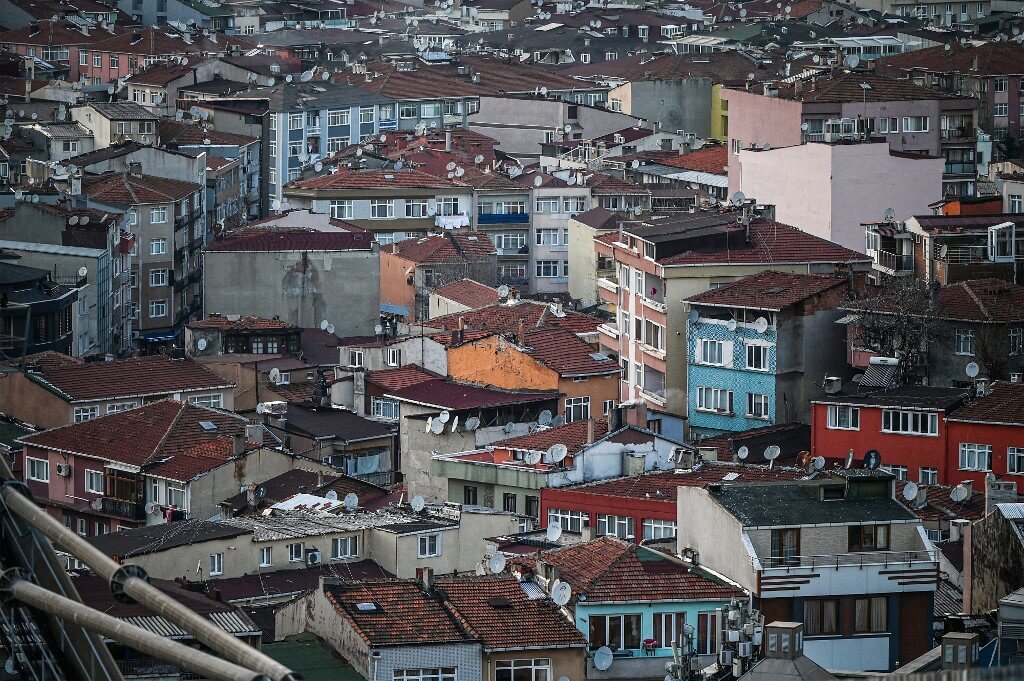The recent passage of a law by the Turkish parliament that allows the government to expropriate homes by administrative decision because they are threatened by disaster has attracted sharp criticism for possible violations of property rights.
Turkey was struck by magnitude 7.8 and 7.5 earthquakes that affected 11 provinces in the country’s south and southeast on Feb. 6, killing more than 50,000 people and leaving millions homeless.
The recently approved law, proposed by the ruling Justice and Development Party (AKP), concerns transforming urban areas at risk of disaster, such as earthquakes.
Opponents of the law contend that it lacks stringent criteria for designating areas at risk of disaster, a significant shift from previous stipulations that required such areas to be undeveloped and outside existing residential zones. The revised law now permits the inclusion of urban spaces currently occupied by residents and parks, raising fears of overreach and development-driven displacement without due regard for property owners’ rights.
Opposition members voiced their concerns during legislative discussions. Lawmaker Ensar Aytekin of the main opposition Republican People’s Party (CHP) criticized the government for neglecting expert input from disaster and urban sociologists. He also accused the government of reneging on commitments to protect environmentally sensitive areas.
Gülcan Kış, also a lawmaker from the CHP, criticized the law for its vague definition of disaster and potential violations of the constitution, particularly regarding property rights. She argued that the law caters more to real estate speculation than to the purported aim of disaster prevention.
Lawmaker İsa Mesih Şahin of the Future Party (GP) also lamented the law’s approval and called for specialized regulations for İstanbul that address its specific seismic challenges.
The law’s broad latitude in defining “reserve zones” where government can appropriate buildings has sparked concerns about property rights and unchecked development.
Lawyer Hatice Yıldız commented on X, formerly known as Twitter, that the law is broad and vague.
‘Your home is in a reserve zone. You have 90 days to leave; we’ve given you another house over there.’ You can’t say it like that. Someone who lives in Moda in İstanbul [a central neighborhood with expensive homes], for example, can find themselves in Başakşehir [a peripheral neighborhood],” Yıldız tweeted.
“As of today, the right to own property has ended in Turkey. Let’s say you have a house in Kadıköy [a central neighborhood bordering the Bosporus]. Your building is solid, but the other buildings on that street are at risk. The ministry will come and declare that street a reserve zone and demolish all the houses. It will also send you to Sultanbeyli [a peripheral neighborhood in İstanbul],” another user on X tweeted.
“We have been saying for days that they will SEIZE our houses under the pretext of DISASTER. Is the opposition interested in this? NO. 195 MPs did not take part in the vote. [The law was] adopted with 237 votes. Well done!” climate activist Önder Algedik posted on X.
Many criticize the AKP for its policies that promote construction-dependent economic growth and say this is not a sustainable and reliable economic policy that will benefit people in the long term.
The AKP government is often accused of being corrupt and allocating public land to its cronies for bribes through laws and regulations that extend state control over valuable real estate.



